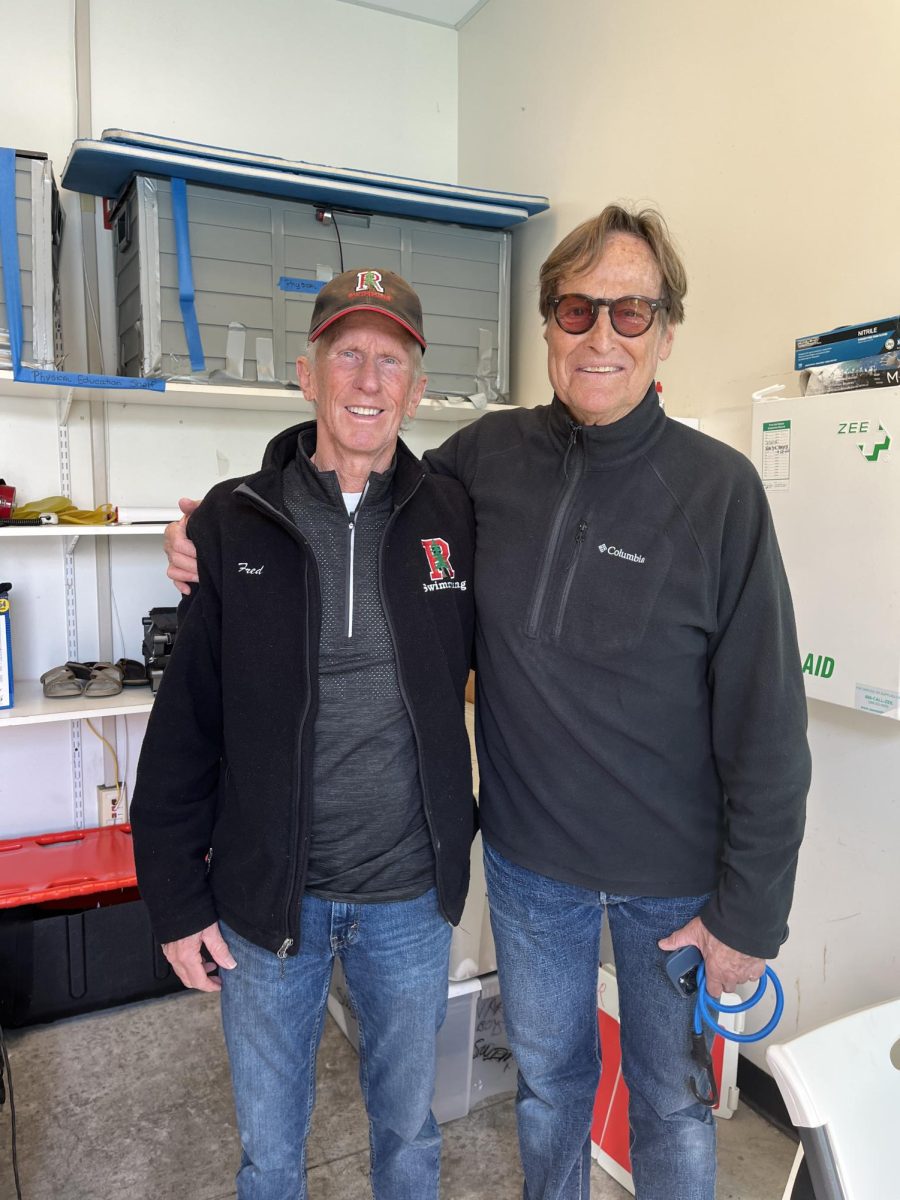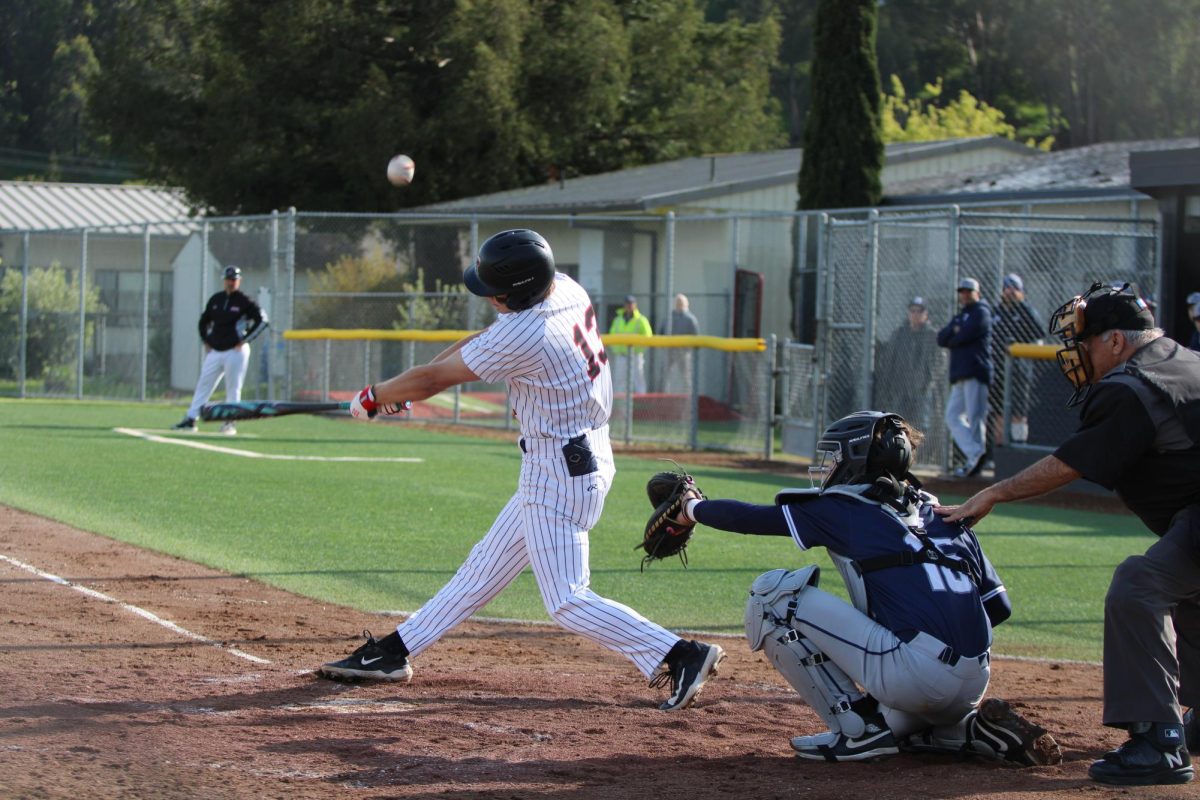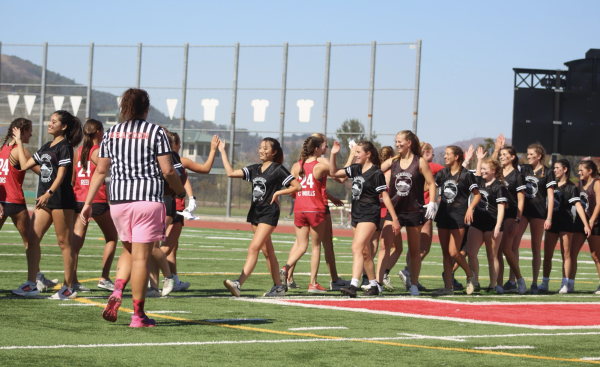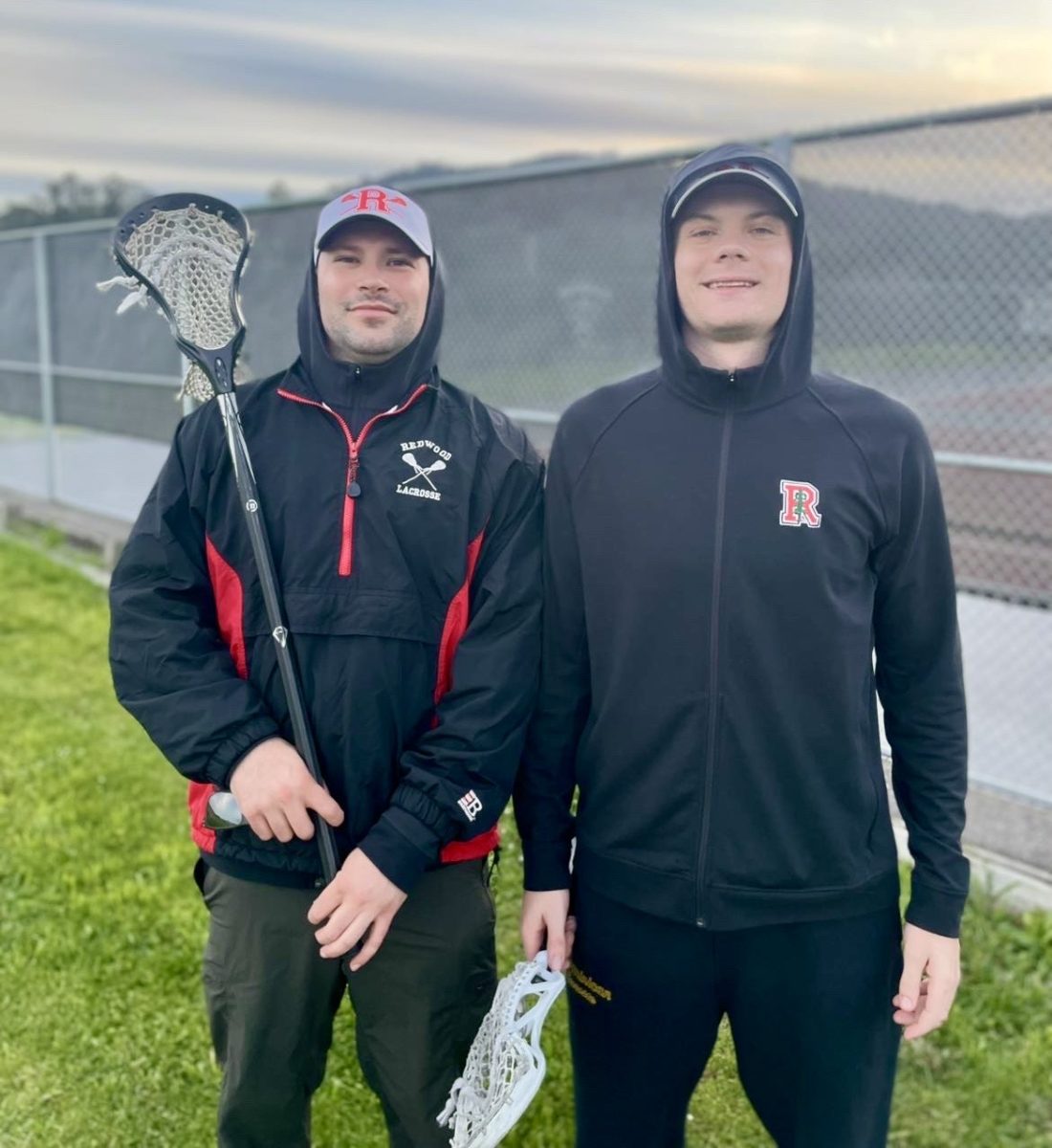When she was just a freshman at Redwood, junior McKenna McGonigle was looking forward to playing college soccer. However, on Oct. 15 of 2016, McGonigle tore her anterior cruciate ligament (ACL) for the first time while playing club soccer during a game against Santa Clara Sporting Club. The injury caused her to miss nine months of training after that. One year later, in November, McGonigle tore the graft that her surgeon had put in her knee to replace the ACL, resulting again in a nine-month break from training. Because of this injury, Mcgonigle’s hope of pursuing soccer in college has been put on ‘pause’ and this goal is far less attainable.
“It’s one of those injuries where it really affects lateral movements. So in the moment of the actual tear there is a lot of pain but it’s just a lot of pain for two minutes and then you walk it off,” McGonigle said.

During her first surgery, a piece of McGonigle’s hamstring was removed and replaced with screws, a procedure professionally known as an autograft. According to McGonigle, she isn’t the only one experiencing these severe procedures; they are very common among female soccer players. According to US Youth Soccer, research studies that have been conducted over the past 10 years show that females are 4-8 times more likely to tear their ACL.
The first time McGonigle tore her ACL was because of a dirty hit from the opposing team and the second time was purely a result of bad timing, according to McGonigle. After her first surgery, McGonigle’s surgeon told her that the chance of her tearing her ACL again was a lot higher.
“I had to wear a pretty heavy duty brace even when I was back playing [again] and I had the brace on, and I just stepped really funny and my knee buckled inward. I knew it tore again because you can hear that really thick pop,” McGonigle said.
Before tearing her ACL for the second time, McGonigle had been training with her club coach, Taylor Gottschalk. According to Gottschalk, he saw McGonigle play for the first time freshman year in a game against Branson, the team he was coaching at the time.
“She caught my eye right away. Since I know most of the players in Marin, she was a player that I didn’t happen to know and within two minutes of her being on the pitch she forced us [Branson] to make a change to what we were doing because her ability to challenge the team was apparent right from the get-go,” Gottschalk said.

Tearing the ACL involves not just physical but emotional recovery. The second time McGonigle tore her ACL she knew exactly what she was getting herself into, according to Gottschalk.
“To do it a second time and the way she reacted, knowing she did it right away, I think hit her pretty hard. To know within seconds of going down again that you’re nine months away from playing the game you love again is incredibly tough,” Gottschalk said.
Even though McGonigle has to wait extended period of time to play again, Gottschalk says that it won’t necessarily stop her from playing in college, but that it will be difficult. The main challenge that McGonigle is now facing is that she will miss eight months of technical development.
According to Gottschalk, any other kid her age going to college in 2019 would have had almost one and a half years more of more soccer training.
“The hardship now is that she will be missing another eight months of time on the ball to develop technically. Because she’s been out injured all that time she will lose the chance to showcase herself in front of colleges or go to their camps to be seen by them,” Gottschalk said.
McGonigle’s original goal was to get recruited to play at a Division I school, but when she tore her ACL the first time she knew that this plan had to be altered. According to McGonigle, as sophomore and junior year are the main recruiting times it will be difficult for her to have a fair chance in recruitment.

“Because of the time frame, it’s going to be hard to get recruited so I might just try and walk [onto the team] at whatever school I go to or maybe get a late spot from someone that drops out senior year,” McGonigle said.
Junior Maddie Pero has been playing soccer with McGonigle since freshman year. According to Pero, Mcgonigle probably would have been recruited her junior year if she hadn’t torn her ACL. This year, Pero has had four of her soccer friends tear their ACL.
“McKenna in particular has had knee issues and so that might have played a role in the injury. I luckily have never had an injury like that. There’s not a lot of injuries that are that severe and that can prohibit your soccer career like that can,” Pero said.
Even though McGonigle doesn’t play in the games and misses some practices, she is still a big part of the team, according to Pero. Because this is the second time that she tore her ACL, the team is trying to be as supportive as they can.

“It’s kind of crazy that it’s the second time but everyone is even more supportive this time than they were last time. Everyone went and saw her the day that she tore it and at this point we’re waiting to go and see her after her surgery. Last time we made her a big poster and it’s always nice to see everyone coming together for one of our teammates,” Pero said.
According to Pero, McGonigle has done a quality job in staying calm and positive.
“She still wants to play soccer, which is something very few people that tear their ACL twice want to do. After everything I can’t believe she isn’t defeated. That’s really amazing that she’s able to stick with it and be so determined,” Pero said.





